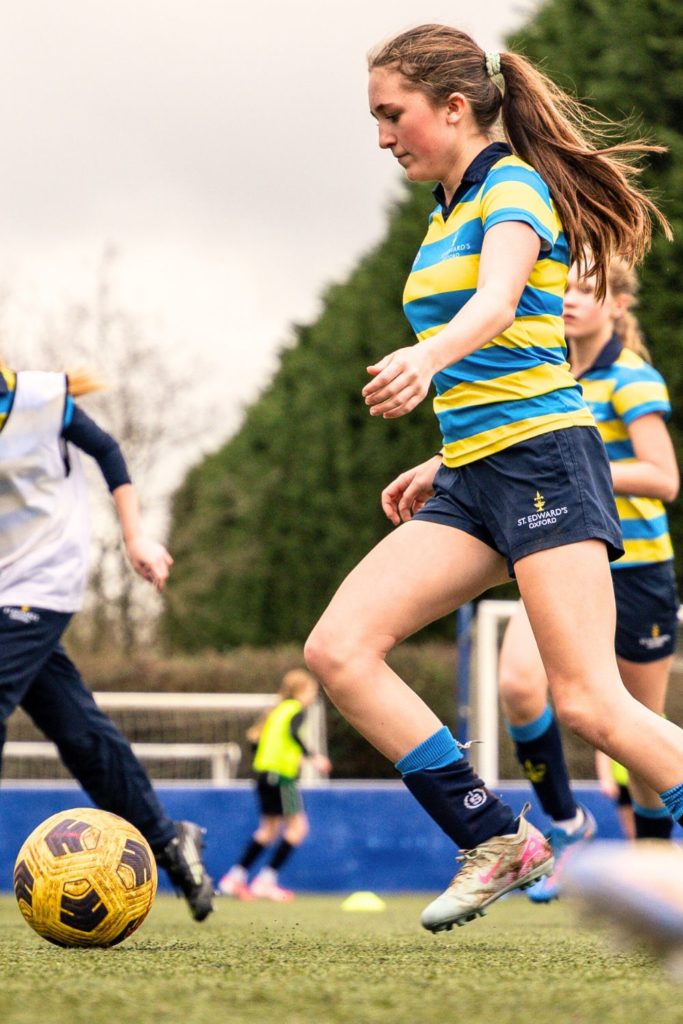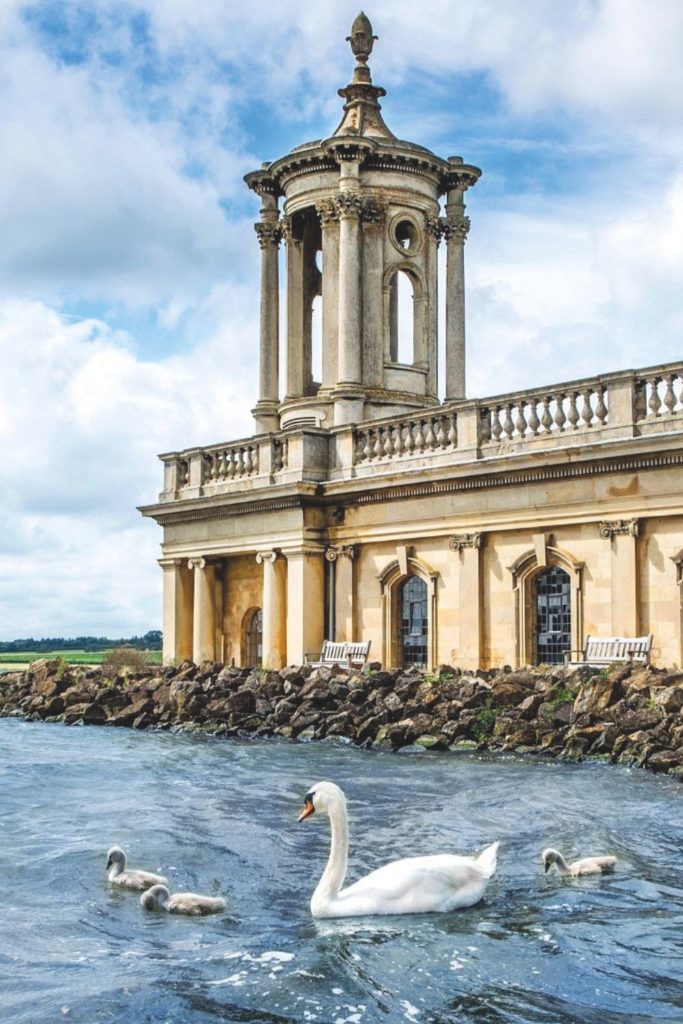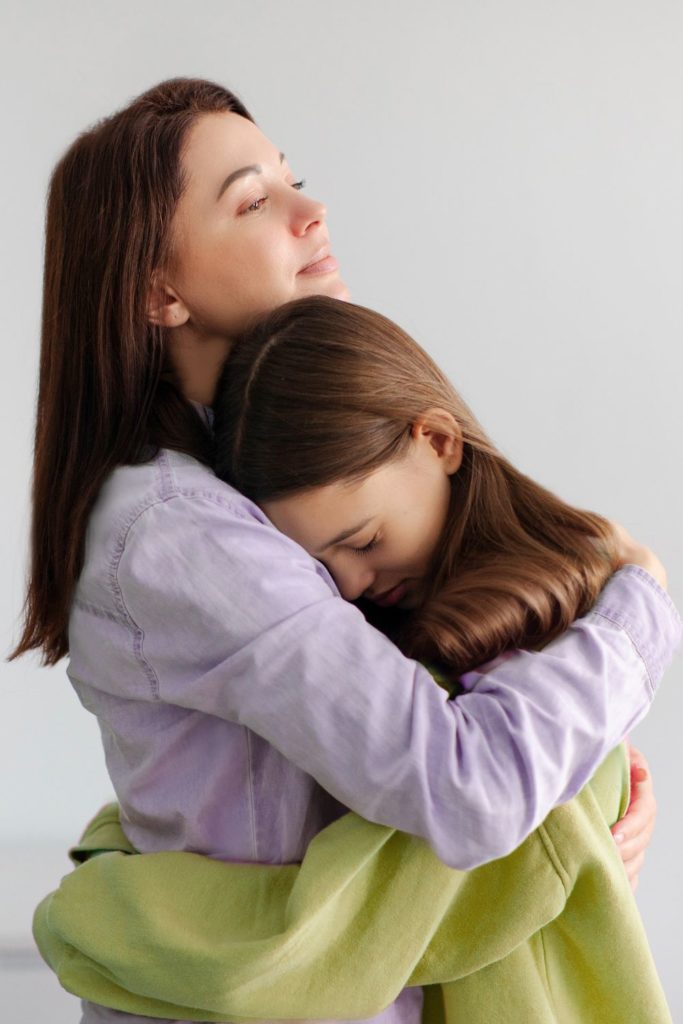World of Action
By
3 years ago
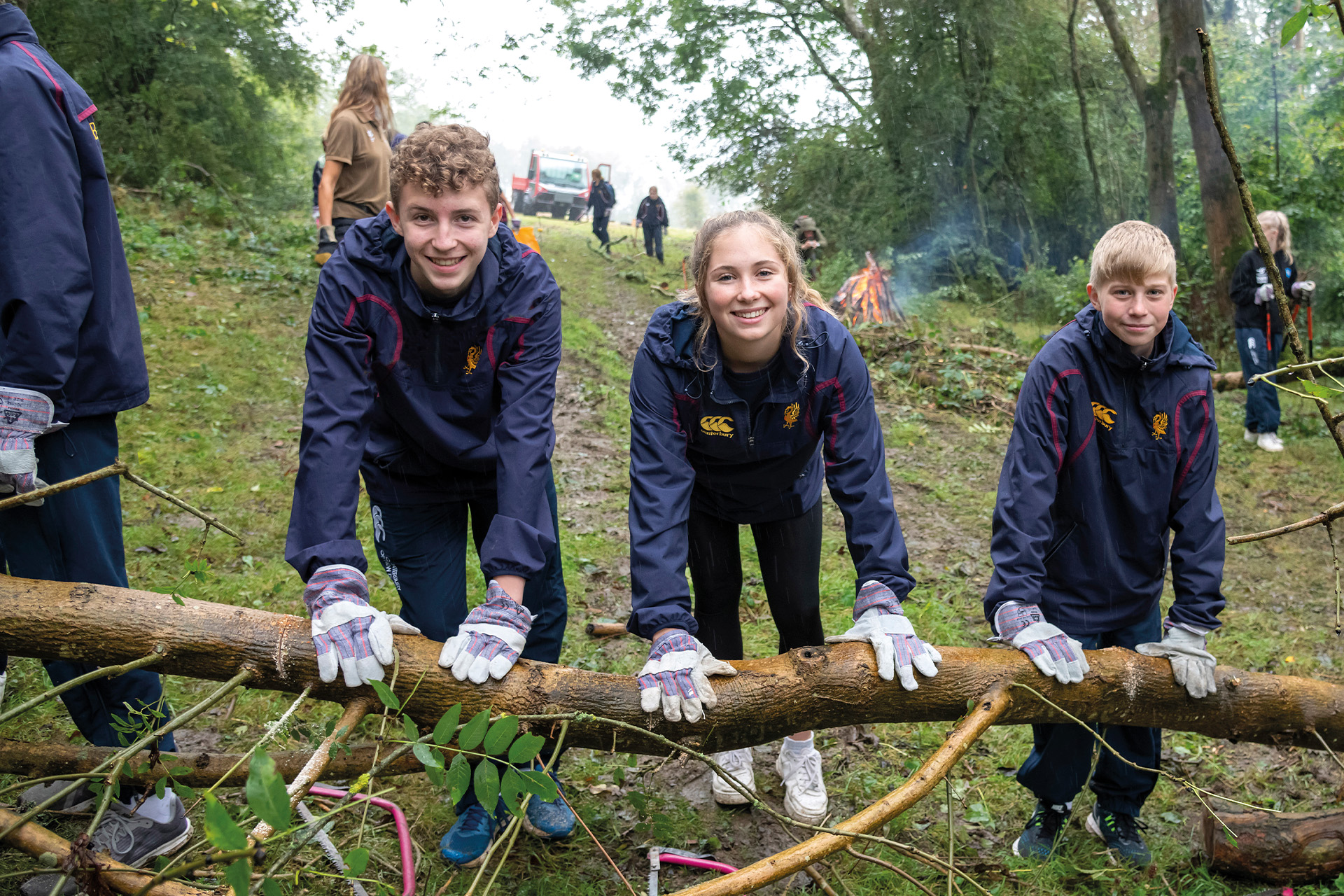
Victoria Lambert looks at the way war in Ukraine is inspiring schools to engage with global challenges.

The ongoing crisis in Ukraine has seen remarkable efforts by British schools and communities to help families in need. But this philanthropic approach to global concerns is not new. Indeed, for many schools, taking a worldwide view of helping others is part of their DNA – and something increasingly offered via curriculums, too.
Julie Robinson, chief executive of the Independent Schools Council (ISC), recently praised schools across the UK for creating their own fundraising initiatives to raise money for Ukrainians in need, including pupils at the King’s School, Worcester, who released a charity single, sung in Ukrainian, to raise money – so far more than £6,500 – for those affected by the war. Meanwhile, at ACS International Schools, Hampton School, and Warwick School, there have been collections of supplies, including clothing, toiletries and other essential items for refugees.
At Alleyn’s School, in London, pupils, staff, parents, governors and alumni wearing blue and yellow – the colours of the Ukrainian flag – held a sponsored walk over a combined distance of 2,656 miles (the equivalent of walking from the school to Kyiv and back). And its pupil-led charity committee organised a movie screening and Easter scavenger hunt to raise funds for the Refugee Council.
The school is also working with other local schools to provide a bespoke curriculum, so that Ukrainian refugee children are supported to learn English and eventually maths as well. Teachers, recognising the emotional impact the crisis has had on children in the UK too, have also set up classes for existing pupils to learn about asylum seekers and refugees.
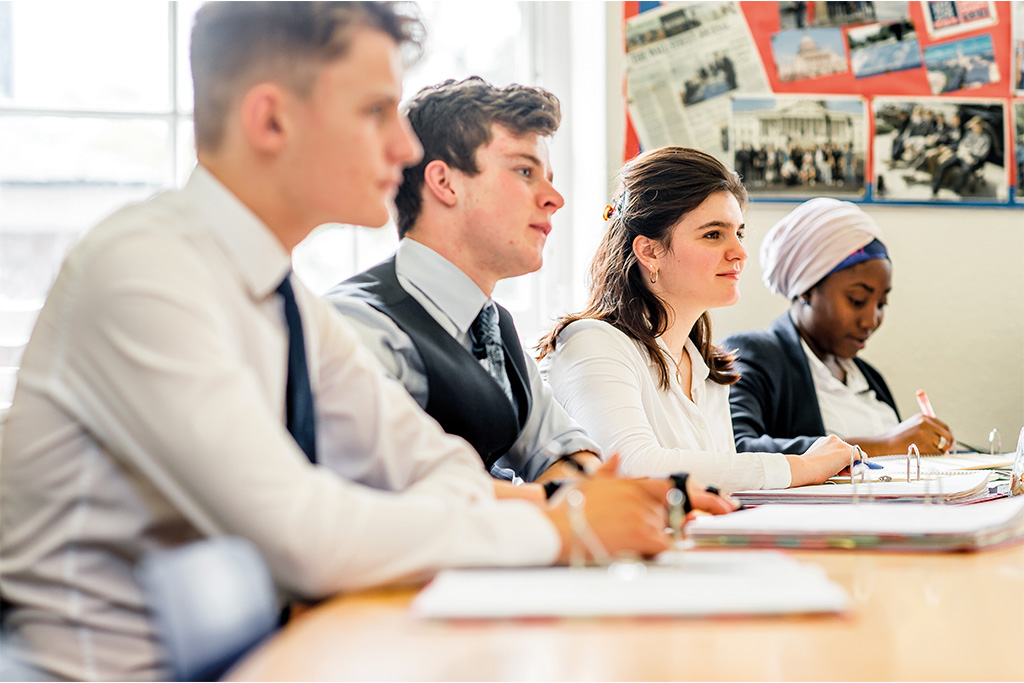
And it’s not just older children getting involved. At St Peter’s York, pupils in pre-prep have supported the citywide Sunflowers Kids Club, which supports Ukrainian children with language skills, and helps them to settle. Seven-year-old Kate led the way by selling sunflower seeds. Phil Hardy, head teacher of St Peter’s Years 2–8, says: ‘Our pupils never fail to amaze me. I’m incredibly proud of Kate on the student council who thought of this lovely idea and raised funds so quickly.’
For Beneden pupils, wanting to take care of others in need is not unusual. Head Samantha Price says: ‘Historically our students have always had a keen interest in global affairs and supporting international causes.’
She adds: ‘The most obvious difference with the situation in Ukraine is that, as a school, we’ve been able to welcome four Ukrainian students into our community; they have joined us on full bursaries and we are delighted to have them with us for as long as they wish to stay. We are also inviting local Ukrainian people to gather here once a month, providing them with an opportunity to just get together, have a meal and enjoy the grounds.
‘As a school community, we also donated huge amounts of clothing and other goods to Ukraine, which our students, staff and parents were delighted to support.’
Ukrainian students are being housed by local families, current parents – we are excited by the contribution these pupils will make to our community and to see how they develop’
Will Goldsmith, headmaster, Bedales
At Brighton College, Headmaster Richard Cairns says the school is looking forward to welcoming up to 15 Ukrainian children, ‘all of them driven from their homeland by this dreadful war.’ Pupils have been busy raising money – one boarding house collectively cycled the distance from Brighton to Kyiv, Ukraine, raising £4,000 for the Disasters Emergency Committee’s Ukraine Humanitarian appeal. And the school’s Amnesty International group arranged for pupils to send letters to MPs.
‘Pupils of all ages have been fundraising for the DEC,’ says Cairns, ‘and also writing to politicians from the outset urging them to do more, something that seems to be bearing fruit. Parents also have been wonderfully engaged, dozens signing up to accommodate refugees as best they can.’
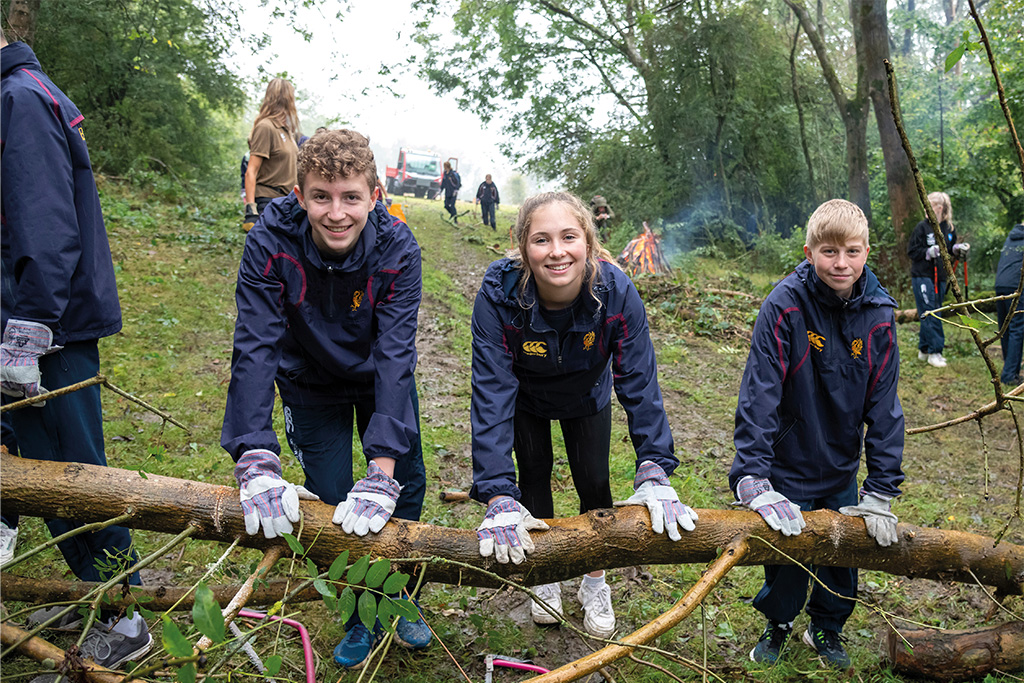
Ukrainians are joining Bedales School in Hampshire, too. Headmaster Will Goldsmith says: ‘With the current war in Ukraine, we have committed to welcoming a significant number of refugee students across age groups and, as of September this year, we will have eight students (including two boarders) on fully funded places.’
He adds: ‘These students and their families are being housed by local families, mainly current Bedales parents, and we are excited about the contribution they will make to our community and seeing them develop in their time with us. Their places are funded thanks to the very generous gifts of donors who already support other students on means-tested bursaries, along with support from the school itself.’
Bedales has a long history of supporting refugees, whether it be their partnership with the Rural Refugee Network (RRN) charity, taking in Syrian refugees through their GCSEs and A-levels on free bursary places or, further back, when the school welcomed an influx of Jewish students escaping Germany in the 1930s.
Moreover, in March, Bedales raised more than £50,000 for the RRN, collectively walking the equivalent of Syria to Steep in a day, and putting on an art sale to raise this considerable sum.
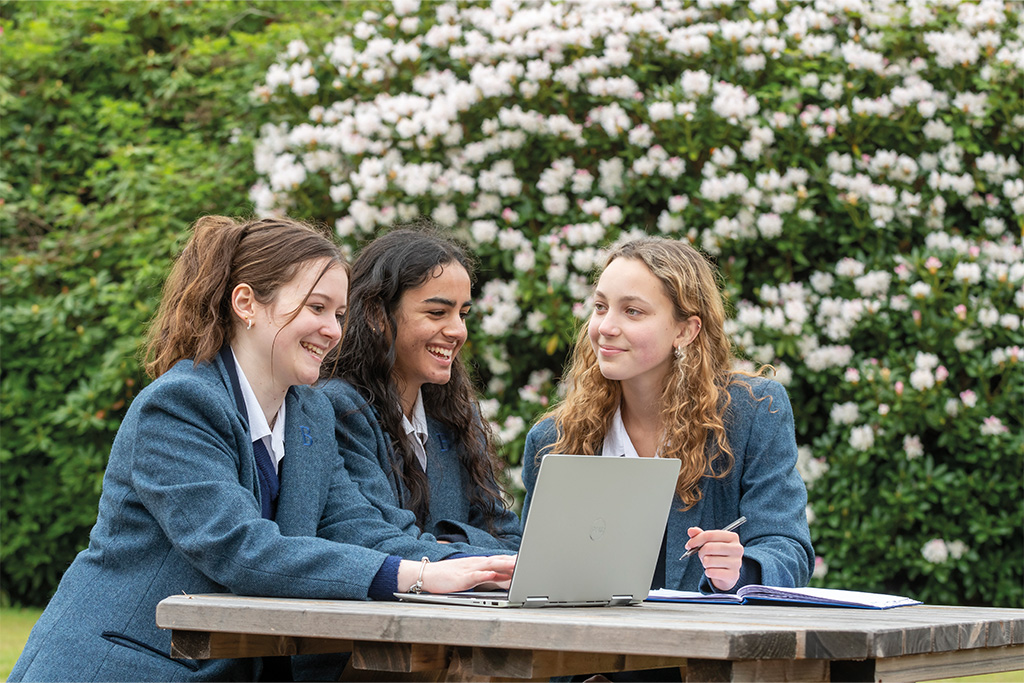
Benenden can point to similar initiatives. Price says: ‘There is a longstanding tradition of global outreach work but recent examples include a team of sixth-formers running a mentoring programme with a Nigerian school, a charity expedition to Nepal, and we supported the women and girls’ Afghan football team when they escaped from Kabul last year, sending clothing and other items such as computer equipment.
‘The students are regularly made aware of topical events around the world through various aspects of school life. This includes whole school assemblies, year group and boarding house gatherings, a student-produced global news digest, and other student clubs and societies, including several that focus on cultural issues.’
So, is there a more academic element to these worthy enterprises? At Benenden, global awareness is taught in a formal setting as one of the key pillars of the Complete Education that underpins the educational experience at the school. Price explains: ‘We ensure through the curriculum that global issues are included across relevant subjects.
‘We also offer a specific global awareness course for students in Year 10 that lasts for two terms. It is drawn from the iGCSE syllabus and covers areas such as current affairs, global politics, international relations and sustainability. These issues are also covered through PSHE sessions and we ensure that global issues are addressed, discussed and debated across a range of forums, including in debating club, through Equality Diversity and Inclusion committees and Model United Nations.
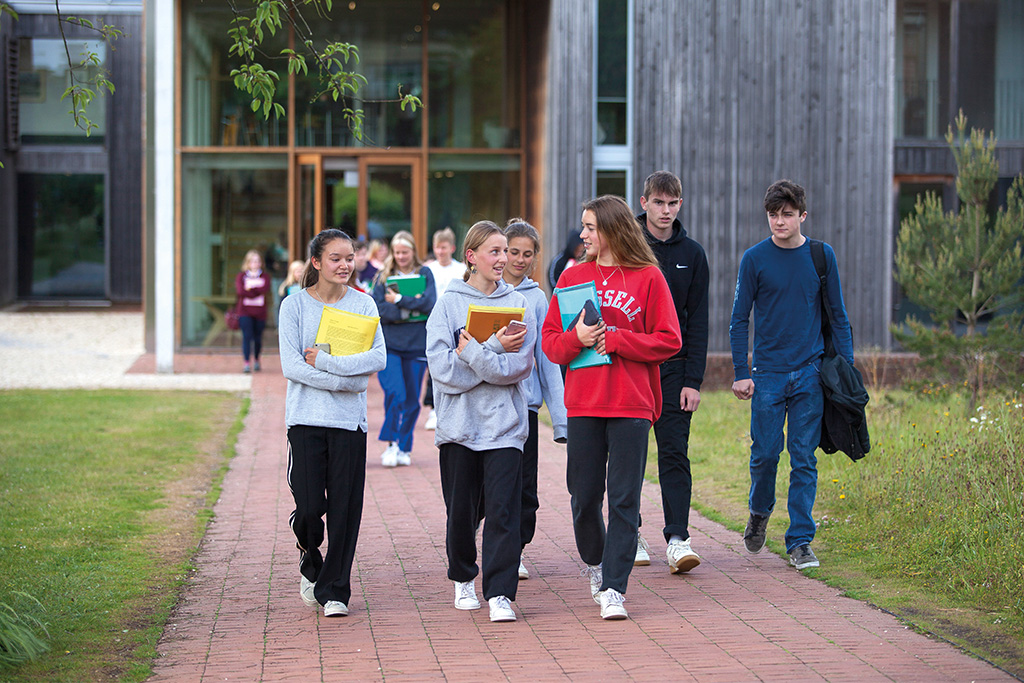
At Bedales, Global Awareness (GA) is taught as a distinct subject, culminating in Bedales’ most popular Bedales Assessed Course (BAC) and Sixth Form Global Perspectives Pre-U course. ‘The focus of GA is twofold,’ explains Goldsmith, ‘equipping students with critical 21st-century skills and providing them with an insight into global issues.
‘Activism and community service are at the heart of the BAC – students are led to becoming social entrepreneurs through ground-breaking project work which requires them to make actual change, within our own community, nationally or globally. GA students regularly lead assemblies and discussions, teach lessons in Bedales Prep and Pre-prep, as well as other local schools.’ A new course in Social Entrepreneurship and Innovation for the sixth form aims to expand these efforts further in the coming years.
For students at ACS International School Hillingdon, there is now the chance to earn a Global Citizen Diploma (GCD). The school is the first in Europe to offer this qualification, which encourages students to work towards the world’s betterment.
ACS Hillingdon head, Martin Hall says he is ‘thrilled’ at the opportunity. ‘We’ve found such an effective and thoughtfully structured way of supporting and reinforcing our school’s values, especially given that the values of the GCD so precisely match our own,’ Hall says. ‘We want every student to be an effective learner, a confident individual and a caring contributor. Above all this, through learning, we want all to make a difference.’
There is no doubt pupils benefit – not just academically. Samantha Price says: ‘The effect of these efforts is that it raises students’ awareness, helps them to embrace certain issues and develop their own opinions. They very often really engage with these issues and want to identify what differences they can make. This, in turn, leads to a pleasing amount of student-led initiatives, such as charity fundraising events, special talks and publications.’
See the online listings of schools mentioned here: ACS Hillingdon, ACS Cobham, ACS Egham, Hampton School, Warwick School, Alleyn’s School, St Peter’s York, Bedales, Brighton College, Benenden


